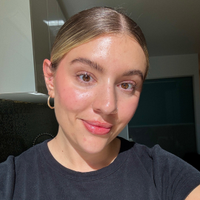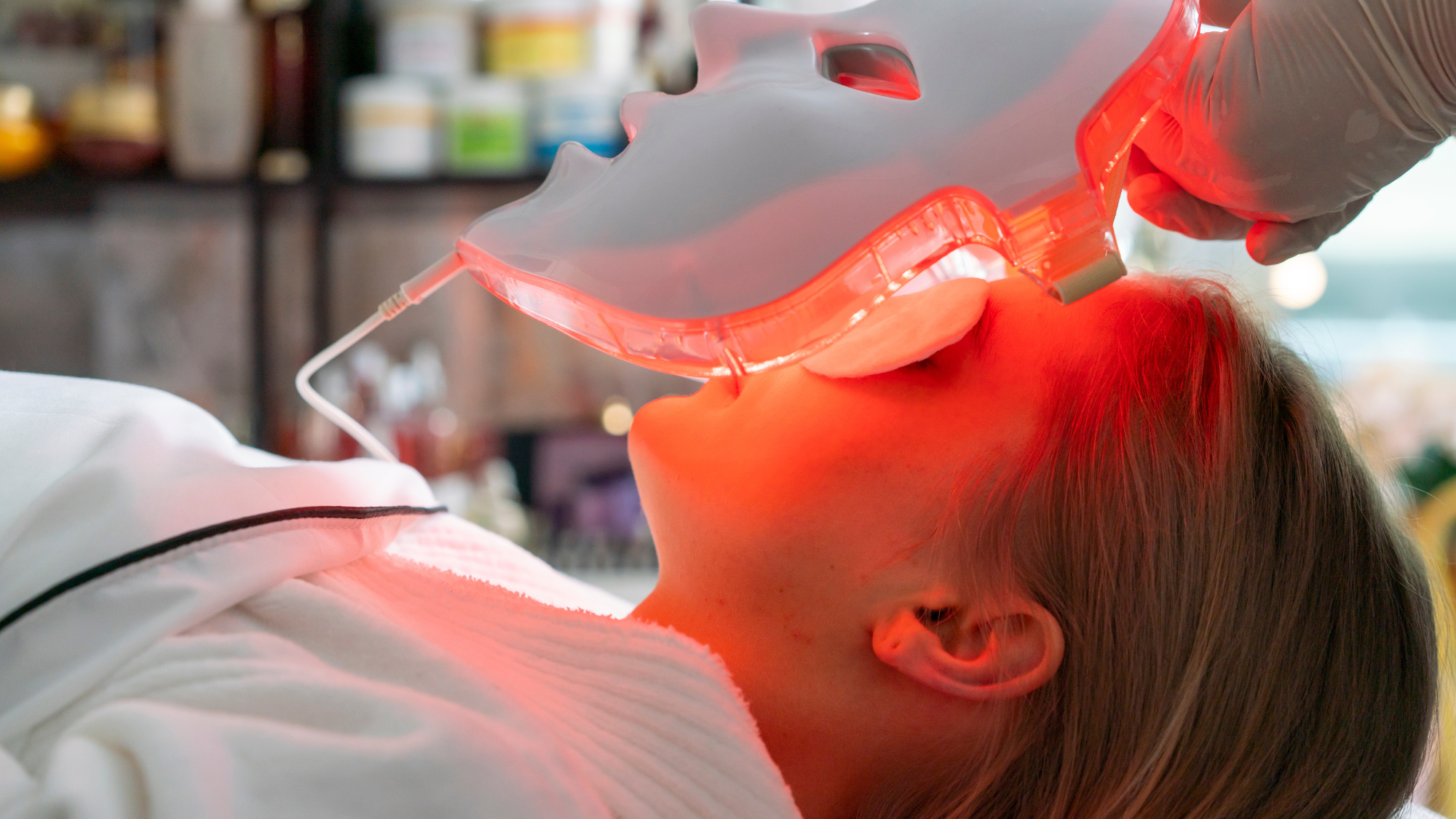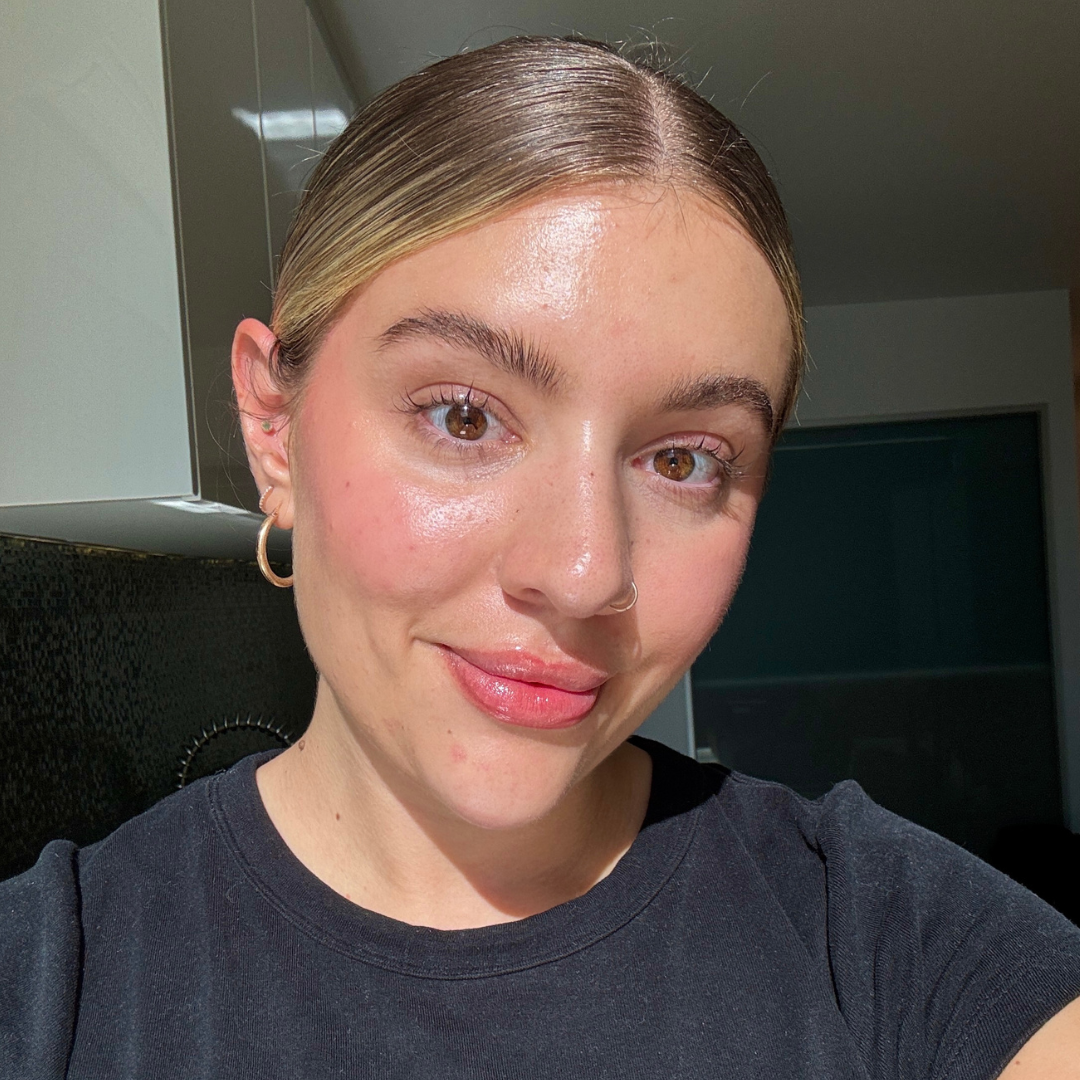As Someone With Adult Acne, These Are the 6 Most Surprising (and Mundane) Lifestyle Tweaks That Have Made the Biggest Difference
From brushing teeth before cleansing to avoiding sleep masks


Celebrity news, beauty, fashion advice, and fascinating features, delivered straight to your inbox!
You are now subscribed
Your newsletter sign-up was successful
The minute I started experiencing adult acne, I knew I had to seek the guidance of one of my most trusted contacts in the skincare industry: Pamela Marshall. A clinical aesthetician who has worked hands-on with skin for the majority of her life, Pamela is a favourite amongst other beauty editors thanks to her endless knowledge, and she's also the founder of the brand that makes one of my favourite serums: Mortar & Milk's PHA Barrier Repair Serum.
Along with some sage skincare routine advice, Pamela always has the best practical "lifestyle" tips for acne; some of which surprised me when I first heard them, but they have made a big difference a few months on. So, without further ado, here are her most interesting "rules".
1. Always brush your teeth before cleansing your skin
This was one of the weirdest tips Pamela first gave me, and at first, I couldn't make the connection between toothbrushing and breakouts. But when you think about it, this really does make sense. "We dribble," explains Pamela. "Even a little dribble can leave toothpaste on your chin. This toothpaste can cause blackheads and spots." There's also another reason, however: you wipe your mouth after brushing your teeth, meaning "you're removing all your good skincare."
This advice is particularly important if you experience breakouts around your mouth or chin. "I can always tell when someone brushes their teeth after they cleanse their skin," she adds. "Brush teeth first."
2. There is no splashing in skincare
We all know that using a flannel or cloth at night to remove makeup is advisable, but Pamela recommends reaching for one every single time you wash your face, morning or night. The reason? Splashing it off really isn't sufficient.
"Always gently remove your cleanser with a flannel of some sort," she explains. "If you splash it off with water, everything can run down your face. It will sit around and under your jawline. Then when you put your serum and moisturiser, it's like putting a blanket over the top of old products, dirt and grime and cleanser." Interestingly, Pamela says that splashing can cause so much havoc that some of her clients have thought that they have hormonal acne, when in fact it's just the result of improper cleansing.
A post shared by Clinisoothe+ Global (@clinisoothe)
A photo posted by on
3. Always wash your sheets in hot water once a week
I'm notoriously bad at washing bedding and makeup brushes as regularly as I should. Usually, I'd leave my sheets for a fortnight, but one of Pamela's most important acne rules is to switch them up once a week. "Every night we slide into bed, we are taking the day's environmental load with us. Unless you shower and wash your hair every night before climbing into bed, you're adding sweat, sebum, dead skin cells, pollution and dust into your bed....And then rolling in it all night," she says. "I can't count the number of clients who only ever had to change their bedsheets more often to help clear their skin." As for your makeup brushes? Weekly is a good goal, too.
Celebrity news, beauty, fashion advice, and fascinating features, delivered straight to your inbox!
4. Always cleanse your skin AFTER shampooing and conditioning your hair
In a similar vein to the order of teeth brushing and skincare, you should consider your in-shower routine carefully, too. "So many of us cleanse before we get in the shower, or while our conditioner is on our hair," she explains. "All of these leave a film on your skin. If you wash your face afterwards, then you wash it all off."
"Some clients have said that they will rinse their hair upside down or to the side... but then you aren't really rinsing very well. Brush teeth, shampoo, condition, rinse well and then cleanse your face. This also goes for the body. Conditioners (especially natural ones) can cause neck, chest, back and bum acne. Wash everything after you've rinsed your conditioner out."
5. Check your hairline
"When I'm cleansing clients' skin, I can always tell how well they are actually washing their hair," says Pamela. "Very often it's the hairline that can cause problems."
This doesn't mean avoiding important haircare products altogether; it's just about being diligent and getting your order right. "Please don't worry about getting your shampoo and conditioner on your face because you will cleanse your skin well afterwards. Make sure your hairline (where it meets your face) is getting thoroughly cleansed and thoroughly rinsed every time. That includes the back of the head as well."
A post shared by Mortar & Milk London (@mortarandmilklondon)
A photo posted by on
6. Sleep eye masks can cause blackheads, acne and milia
For those of us who need sensory deprivation to sleep, an eye mask may be an essential item. But how often do you wash yours? If it's less than daily, your skin may be paying the price. "If you need one, then either wash it daily or have a few to rotate. They must be clean with each use," stresses the skin expert. "A buildup of sweat, sebum, bacteria and dead skin cells gets on them and they can wreak havoc." You've been warned.

Rebecca is a freelance beauty journalist and contributor to Marie Claire. She has written for titles including Refinery29, The Independent, Grazia, Coveteur, Dazed, Stylist, and Glamour. She is also a brand consultant and has worked with the likes of The Inkey List on campaign messaging and branded copy. She’s obsessed with skincare, nail art and fragrance, and outside of beauty, Rebecca likes to travel, watch true crime docs, pet sausage dogs and drink coffee. Rebecca is also passionate about American politics and mental health awareness.